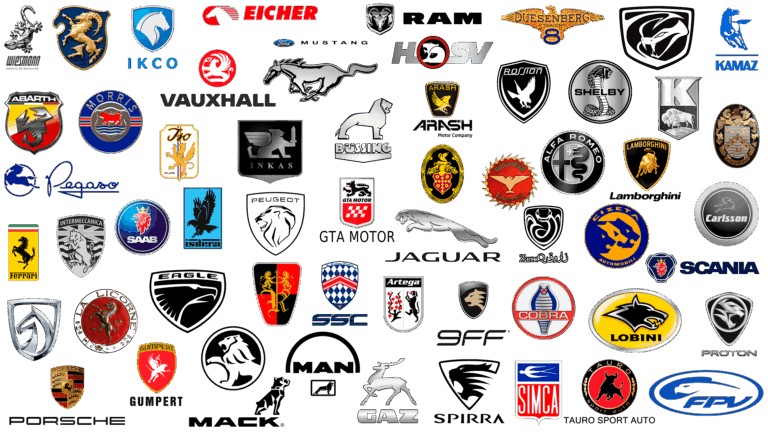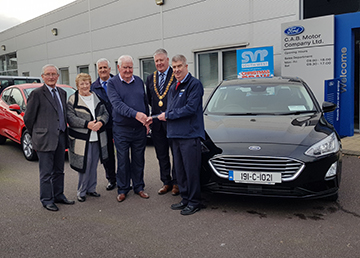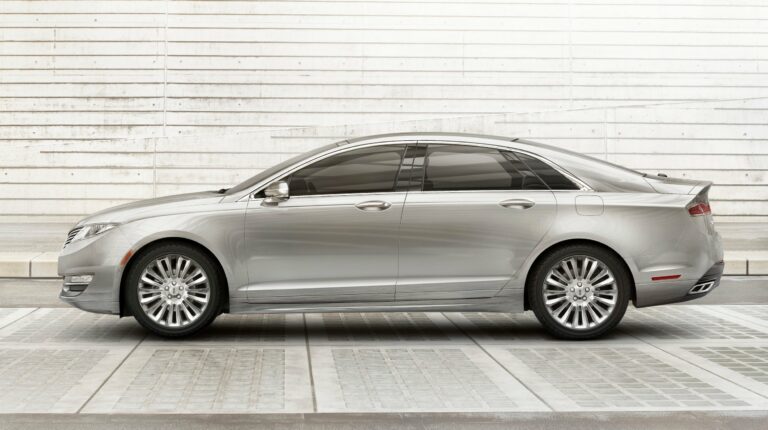What’s The Cheapest Car Brand: A Comprehensive Guide to Affordable Automotive Ownership
What’s The Cheapest Car Brand: A Comprehensive Guide to Affordable Automotive Ownership cars.truckstrend.com
In an era where every dollar counts, the quest for affordability extends to our vehicles. For many, a car is not a luxury but a necessity, a tool for work, family, and daily life. The question "What’s the cheapest car brand?" isn’t just about finding the lowest sticker price; it’s about making a financially astute decision that impacts your wallet long after the initial purchase. This comprehensive guide will navigate the complex landscape of automotive pricing, helping you identify brands that consistently offer value and dissecting what "cheapest" truly means in the context of car ownership.
What Does "Cheapest" Really Mean? Beyond the Sticker Price
What’s The Cheapest Car Brand: A Comprehensive Guide to Affordable Automotive Ownership
When we talk about the "cheapest car brand," it’s crucial to understand that the initial Manufacturer’s Suggested Retail Price (MSRP) is only one piece of the puzzle. A truly "cheap" car offers low total cost of ownership (TCO). TCO encompasses several critical factors:
- Purchase Price (MSRP): The upfront cost. This is what most people immediately think of.
- Fuel Efficiency: Lower fuel consumption translates to significant savings over the vehicle’s lifespan.
- Insurance Costs: Some brands/models are statistically less expensive to insure due to repair costs, safety ratings, and theft rates.
- Maintenance and Repairs: Reliability and the cost of parts and labor play a huge role. Brands with a reputation for durability often cost less to maintain.
- Depreciation: How much value a car loses over time. While often overlooked, high depreciation can make a seemingly cheap car expensive in the long run if you plan to sell it.
- Financing Costs: Interest paid on a car loan can add thousands to the total price.

Therefore, identifying the cheapest car brand requires a holistic view, looking at brands that consistently perform well across these metrics for their entry-level offerings.
Contenders for the "Cheapest" Brands Prioritizing Affordability
While the automotive market is dynamic, a few brands consistently vie for the title of "cheapest" by focusing on value, efficiency, and accessible entry points. These often include:
- Mitsubishi: Known for models like the Mirage, which consistently holds the title of one of the lowest-priced new cars in the U.S.
- Kia: Has made a remarkable transformation, but still offers highly competitive pricing on entry-level sedans and subcompact SUVs.
- Hyundai: Similar to Kia, Hyundai provides strong value propositions with affordable sedans and SUVs.
- Chevrolet: Offers some of the most affordable domestic options, particularly in its subcompact and compact segments.
- Nissan: With models like the Versa, Nissan remains a strong contender for budget-conscious buyers.
These brands often achieve lower price points by focusing on essential features, efficient powertrains, and streamlined manufacturing processes, making new car ownership more accessible.
Deep Dive: Mitsubishi – The Unchallenged Entry-Level King
When it comes to pure MSRP, Mitsubishi, particularly with its Mirage hatchback and G4 sedan, often takes the crown for the cheapest new car available in many markets.
- Pros:
- Extremely Low MSRP: Its primary selling point. It’s often the cheapest car you can buy new.
- Excellent Fuel Economy: The Mirage is a fuel-sipper, offering impressive MPG ratings that keep running costs low.
- Generous Warranty: Mitsubishi offers one of the best warranties in the business (10-year/100,000-mile powertrain, 5-year/60,000-mile bumper-to-bumper), providing peace of mind.
- Compact Size: Easy to maneuver and park in urban environments.
- Cons:
- Basic Features: Don’t expect luxury or cutting-edge technology. The focus is on essentials.
- Modest Performance: Its small engine provides adequate power for city driving but can feel strained on highways.
- Interior Quality: The cabin materials are durable but utilitarian.
For buyers who prioritize the absolute lowest purchase price and minimal fuel consumption above all else, Mitsubishi’s entry-level offerings are compelling.
Deep Dive: Kia & Hyundai – Value Powerhouses with Growing Appeal
Kia and Hyundai, often referred to as sister brands, have strategically positioned themselves as leaders in the value segment. While their top-tier models compete with premium brands, their entry-level offerings remain incredibly affordable, often packed with more features than competitors at similar price points.
- Kia (e.g., Rio, Forte, Soul, Seltos): Kia’s smallest sedan, the Rio, and the compact Forte, offer excellent value. The Soul and Seltos provide affordable SUV-like practicality. Kia’s aggressive styling and robust standard features, combined with their industry-leading warranty (matching Mitsubishi’s 10-year/100,000-mile powertrain), make them highly attractive. They balance affordability with modern connectivity and safety features.
- Hyundai (e.g., Venue, Elantra, Kona): Hyundai’s subcompact Venue SUV is often one of the cheapest new SUVs on the market, while the Elantra sedan offers a strong package of features and fuel economy for its price. The Kona also offers an affordable entry into the compact SUV segment. Hyundai shares the same fantastic warranty as Kia and has a strong reputation for reliability, contributing to lower TCO.
Both Kia and Hyundai offer a compelling argument for being among the "cheapest" brands when considering the balance of price, features, reliability, and warranty coverage.
Deep Dive: Chevrolet & Nissan – Established Players in the Budget Segment
Chevrolet and Nissan are long-standing brands that understand the importance of offering budget-friendly options to attract a broad customer base.
- Chevrolet (e.g., Trax, Malibu, Trailblazer): While the Spark (previously their cheapest car) has been discontinued, Chevrolet continues to offer accessible options like the Trax subcompact SUV and the Malibu sedan, which often come with competitive pricing and incentives. Chevrolet leverages its large dealer network and parts availability, potentially leading to lower maintenance costs.
- Nissan (e.g., Versa, Kicks): The Nissan Versa consistently ranks as one of the most affordable sedans available, offering decent space and fuel economy for its price. The Kicks subcompact SUV is another strong contender, providing SUV versatility at a budget-friendly cost. Nissan often uses continuously variable transmissions (CVTs) to maximize fuel efficiency, contributing to lower running costs.
These brands provide established reliability and widespread service networks, which can be a significant advantage for budget-conscious buyers.
Factors Influencing Car Price Beyond the Brand
While brand plays a huge role, several other factors can influence the final price you pay:
- Trim Level: Base models are always the cheapest. Moving up just one trim level can add thousands to the price.
- Optional Features/Packages: Navigation, premium audio, advanced driver-assistance systems (ADAS) all add cost.
- Transmission Type: Manual transmissions are often cheaper than automatics, though less common now.
- Engine Size/Type: Smaller, less powerful engines are typically more affordable.
- Geographic Location: Prices can vary slightly by region due to transportation costs and market demand.
- Dealer Incentives & Rebates: Manufacturers and dealerships often offer discounts, financing deals, or cash-back offers that can significantly lower the effective price.
- Time of Year/Model Year End: Buying at the end of a model year or calendar year can yield better deals as dealerships clear inventory.
Practical Advice and Actionable Insights for Budget Buyers
- Prioritize TCO: Don’t just look at the MSRP. Research fuel economy, insurance costs, and expected maintenance. Websites like Edmunds, Kelley Blue Book (KBB), and Consumer Reports offer TCO calculators.
- Consider Base Models: Stick to the entry-level trim for the absolute lowest price. Many base models today come with essential features like air conditioning, power windows, and basic infotainment.
- Explore Certified Pre-Owned (CPO): A CPO vehicle from a reliable brand can offer significant savings over new, often with an extended warranty and rigorous inspection, providing a "like-new" experience at a lower price point.
- Negotiate: Always negotiate the price. Don’t be afraid to walk away if the deal isn’t right.
- Get Pre-Approved for a Loan: Knowing your financing options before you step into a dealership gives you leverage.
- Test Drive Thoroughly: Even if it’s the cheapest, ensure it meets your basic needs for comfort, space, and performance.
- Read Reviews: Check independent reviews for reliability, common issues, and owner satisfaction.
Challenges and Solutions
- Limited Features: Budget cars often lack advanced tech or creature comforts.
- Solution: Focus on what you need (safety, connectivity) versus what you want (sunroof, heated seats).
- Modest Performance: Smaller engines mean slower acceleration.
- Solution: For city driving and daily commuting, performance is usually adequate. Adjust expectations.
- Perceived "Cheapness": Some buyers worry about lower quality or prestige.
- Solution: Modern budget cars are far more reliable and safer than their predecessors. Focus on the practical benefits and excellent warranties.
- Potentially Lower Resale Value: Some models may depreciate faster.
- Solution: Keeping the car longer minimizes the impact of depreciation. Excellent maintenance can also help retain value.
Table: Entry-Level Models from Cheapest Car Brands (Estimated Starting MSRP)
Please note: Prices are estimated U.S. MSRP for base models and can vary based on region, dealer, incentives, and model year changes. This table is for illustrative purposes as of late 2023/early 2024.
| Car Brand | Model (Entry-Level) | Estimated Starting MSRP (USD) | Key Features / Notes |
|---|---|---|---|
| Mitsubishi | Mirage Hatchback | $16,695 | Often the lowest MSRP new car. Excellent fuel economy (39 MPG combined). 10-year/100k-mile powertrain warranty. |
| Nissan | Versa Sedan | $17,000 | Strong value, good fuel economy (35 MPG combined). Standard safety features. |
| Kia | Rio Sedan | $17,900 | Stylish design, good standard features, 10-year/100k-mile powertrain warranty. |
| Hyundai | Venue SUV | $19,900 | One of the cheapest new SUVs. Compact, city-friendly. 10-year/100k-mile powertrain warranty. |
| Chevrolet | Trax SUV | $21,495 | Affordable entry into the SUV segment. Larger than previous budget Chevy models. |
Note: The Chevrolet Spark, previously a top contender for cheapest car, was discontinued after the 2022 model year.
Frequently Asked Questions (FAQ)
Q: Is the cheapest car brand always the best value?
A: Not necessarily. While low MSRP is appealing, true value comes from a low Total Cost of Ownership (TCO), which includes fuel, insurance, maintenance, and depreciation. A slightly more expensive car upfront might save you money in the long run.
Q: Do cheaper cars have fewer safety features?
A: Modern safety regulations mean even the cheapest new cars come with essential safety features like multiple airbags, stability control, and anti-lock brakes. Many also include basic driver-assistance features as standard or affordable options.
Q: What about used cars? Are they always cheaper?
A: Used cars almost always have a lower purchase price than new cars. However, they may have higher maintenance costs (especially older models) and often come with shorter or no warranty, so research and inspection are crucial.
Q: Will a cheap car break down more often?
A: Not inherently. Brands like Kia, Hyundai, and Mitsubishi offer excellent warranties and have improved their reliability significantly over the years. Regular maintenance is key for any car’s longevity.
Q: Can I get a cheap car with good fuel economy?
A: Absolutely! Many of the cheapest cars, like the Mitsubishi Mirage and Nissan Versa, are designed with fuel efficiency as a primary goal, offering excellent MPG ratings.
Conclusion
Identifying the "cheapest car brand" is more nuanced than simply pointing to the lowest MSRP. It involves a holistic assessment of Total Cost of Ownership, considering not just the purchase price but also fuel efficiency, insurance, maintenance, and depreciation. Brands like Mitsubishi, Kia, Hyundai, Nissan, and Chevrolet consistently offer compelling entry-level vehicles that provide significant value for budget-conscious buyers.
By understanding what drives car costs and adopting smart buying strategies, you can confidently navigate the market and find a reliable, affordable vehicle that meets your needs without breaking the bank. The cheapest car isn’t just about saving money today; it’s about making a smart financial decision for your automotive future.





